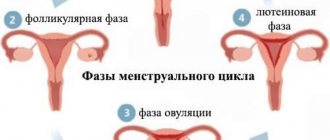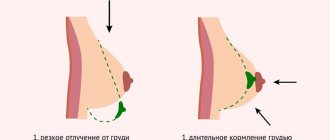Indications for preservation
Women who do not have obvious health problems (anatomical, genetic and others) are recommended to follow general rules at the beginning of pregnancy: lead a healthy lifestyle, visit a doctor and take vitamins. But, there is a risk group when you need to be careful in the first trimester, and be sure to take measures to preserve it. This applies to women:
- over 35+;
- having a history of miscarriages, abortions, frozen pregnancies, abdominal operations of the uterus;
- with genetic predispositions;
- who gave birth to children with disabilities;
- with multiple gestations;
- with dangerous diseases - diabetes, asthma, cardiovascular pathologies, etc.;
- with anatomical anomalies in the structure of organs.
If the expectant mother has at least one of the factors, then she must be regularly monitored by a specialist and carry out the prescribed procedures.
How to maintain pregnancy
To find out which method of preventing early miscarriage corresponds to the characteristics of the body, you need to consult a doctor and, after undergoing examinations, the specialist will give accurate recommendations.
Is it worth saving in the first weeks?
Does it make sense to preserve the fetus in the first weeks? If a girl is pregnant for the first time, the period is literally 4-7 weeks, she is not at risk, and there is a high risk of miscarriage, then it is more advisable to terminate the pregnancy. Objectively: miscarriage at this time is more often provoked by an abnormal structure or deformation of chromosomes, which in the future, if the fetus is saved, will negatively affect the entire development. After some time, a woman can try to conceive again.
How to keep your baby in the first trimester
The first trimester is an important time for the fetus. During this period, the formation and development of organs, life support systems, and the formation of the neural tube occur. Any negative impact can affect this process and cause spontaneous abortion.
Doctors advise following general rules:
- Avoid alcohol and nicotine.
- Eat right, exclude spicy, fatty, smoked and fast food.
- Spend a lot of time outdoors.
- Do light exercises for pregnant women.
- Strengthen the immune system (it is allowed to take cypress as tea or decoction).
- No stress and more positive emotions.
- Timely visit to the antenatal clinic.
- Avoid vigorous physical activity.
- Use special vitamin complexes, including folic acid and iron supplements.
A woman should carefully monitor any changes in her health; if there are suspicious symptoms, she should seek help from a specialist:
- Nagging pain in the lower abdomen.
- Bloody issues;
- Severe toxicosis.
- Shooting pain in the lower back.
- Dizziness and loss of consciousness.
- Severe apathy and weakness.
If there is a threat of miscarriage, the doctor will examine the woman in labor and, depending on the condition, prescribe treatment; sometimes it is not necessary to stay in the hospital for certain daily procedures.
What conservation hormones are used in the second trimester?
The middle of pregnancy is a calmer period, but if a woman had a threat of spontaneous abortion, then even during this period it is necessary to carefully monitor the intrauterine development of the child. The most dangerous periods are 13.18-23 weeks of gestation.
At the first threat of miscarriage, the woman should remain in bed. The medications prescribed are those that have a calming and relaxing effect (Valerian, Sedasen). If the period is more than 16 weeks, then the doctor may prescribe Genipral, Magnesium Sulfate, Partusisten or similar drugs, they relax muscle spasms. Administered by infusion. If the patient has bleeding, then medications are used to stop it; for immunity, it is necessary to drink a multivitamin complex.
Is it possible to save in case of bleeding in the early stages?
Bleeding in the first weeks after conception does not always mean a miscarriage. This may be caused by other factors:
- attachment of the fertilized egg can sometimes be accompanied by a slight discharge of blood. This may happen for a couple of days, the blood is scarlet and in small quantities;
- Some women in labor experience light bleeding, similar to menstruation, accompanied by the same symptoms. This occurs due to increased hormone levels and can last up to three months. But then the placenta stabilizes the hormonal levels.
At the first appearance of bloody discharge, you should consult a doctor to identify the true cause. According to statistics, 30% - there is a real threat of miscarriage. But, if the state of health allows and the fetus develops normally, then the pregnancy can be maintained by resorting to medications and following all the doctor’s requirements.
How long do they stay in bed and for how long are they treated to preserve pregnancy?
If a woman is at risk of spontaneous abortion, the doctor may insist on hospital treatment. The duration of the course depends on the condition of the mother and child. Medicines and procedures are prescribed by the doctor.
Early signs of pregnancy
When a woman becomes pregnant, the so-called restructuring begins in her body in order to successfully bear and give birth to a child. All changes during this period, even before the delay of menstruation, have their own signs.
These include:
- Minor spotting approximately 6-12 days after intercourse
- Frequent and painful urination
- Increased appetite
- Cold symptoms are often felt, that is, headaches, fatigue, fever, malaise.
- Lower blood pressure
- Sensitivity of the mammary glands, perhaps they swell a little or become painful.
A feeling of fullness in the lower abdomen, this may be due to the fact that during pregnancy, blood flow to the pelvic area increases and the uterus becomes larger.
- Increased sensitivity to odors
- Nausea
- Dizziness
Indirect signs
Often, most women do not notice the onset of pregnancy and the beginning of life. Only after a new menstrual cycle does not occur do girls begin to suspect something. Doctors say that a delay in menstruation is the very first sign, but still indirect. After all, a delay can occur due to hormonal imbalances, inflammatory processes or other reasons.
Ectopic pregnancy
Sometimes an ectopic pregnancy occurs, in which the baby develops outside the uterus. This may be due to inflammation, congenital or acquired pathologies of the fallopian tubes, or hormonal disorders. Unfortunately, it is impossible to save the child.
It is extremely important to identify the pathology in the early stages; otherwise, the woman’s life will be at risk. At the initial stages, it is no different from the usual one, but in the future, the development of the fertilized egg in the wrong place will lead to intra-abdominal bleeding and urgent surgery will be required.
When is the decision to cleanse the uterus made?
Cleansing the uterus is the removal of the fetus from the uterine cavity. It is produced either pharmacologically or surgically.
If the pregnancy has frozen, that is, the child has stopped intrauterine development, then a cleansing procedure is necessary to free the uterus from the fetus and prevent its decomposition, which can cause infection in the woman, even death.
If research reveals that the fetus is not viable, then a decision is also made to remove it. For up to six weeks, this can be done using tablets. If the period is longer, then with the help of curettage, after 27 weeks only through artificial birth.
Before the procedure, a set of measures is carried out:
- Full examination and consultation with a gynecologist.
- Referral from a general practitioner.
- Bacterioscopy.
- Urine and blood analysis.
- Coagulogram.
- Ultrasound OMT.
- Blood test for HIV, hepatitis and syphilis.
Read also
Principles and methods of preparing the cervix for childbirth at home and in the maternity hospital
The procedure is used in extreme cases when the child cannot be saved. At the request of a woman in Russia, abortions are allowed up to the 12th week; for medical purposes, at any time, if there is a threat to the patient’s life.
When can you plan a pregnancy again?
After a miscarriage, abortion or frozen pregnancy, the body needs time to recover.
Doctors recommend a new conception no earlier than in a year and a half.
But it all depends on individual characteristics. Before planning, a woman must undergo examinations to reduce the risks of spontaneous abortion and identify and eliminate health problems.
Pregnancy should be taken seriously and planned for by both partners. Before this, it is better to consult with specialists, attend recommended procedures and get tested in order to minimize the risks of interruption. And in the first trimester of pregnancy, a woman should be more careful and, if there are dangerous symptoms, seek help.
Should you always try to maintain a pregnancy?
Should I continue the pregnancy? At first glance, this is a very strange question. Of course, save!
At the same time, in European countries, the UK and the USA, they have long been very calm about threatening miscarriages in the early stages of pregnancy. No one grabs these women, puts them in a hospital, or prescribes a dozen medications.
OK, our Western colleagues say, if a miscarriage does not occur, come back in two weeks.
Every time patients tell me about how good it is in the so-called “West” and how bad it is here, I smile. Doctors and people who permanently live there know how things are in reality. The same ones who return to their homeland every year to undergo a comprehensive medical examination, have their teeth treated and solve other medical problems.
The wait for a consultation with a specialist can last for months; the waiting list for an MRI can last up to a year. There, it is impossible to shout and threaten a doctor to return to the office and force him to continue seeing patients after the end of the working day.
No one in the “West” will bother with “preserving” pregnancy in the first trimester of pregnancy, because there are studies, guidelines and protocols that say in black and white:
80% of miscarriages before 8 weeks and 60% before 12 weeks are due to natural selection. It is impossible to save these pregnancies, and there is no point in trying.
Imagine a similar situation in Russia. The desired pregnancy, delay, tests, vitamins, dreams and, suddenly, spotting! An ambulance with flashing lights takes us to the gynecological hospital, an urgent ultrasound - the fertilized egg is in place, hurray! IVs, injections, bed rest. This is what the picture looks like in our view. What will happen if the gynecologist in the waiting room says: “OK, if the pregnancy continues, come to the antenatal clinic in a couple of weeks”
The doctor will be crucified, torn to pieces, condemned. Complaint to the President, commission from the Ministry of Health. And all this despite the fact that Russian obstetricians and gynecologists are not idiots. They also know very well that 80% of miscarriages before 8 weeks and 60% before 12 weeks cannot be saved. Not one pill, not three, not a dropper, not a handful of drugs.
In 2021, I wrote about how the domestic tradition of “staying in storage” can be not only meaningless, but also unsafe. As expected, three points of view prevailed in the comments:
“How without saving??? Prostration to the doctors who saved me and my child!” and “And it helps me.” It’s very good that you managed to win, it helped and you are grateful to the doctors.
“Doctors are admitted to the hospital just for show, for reporting, for safety net.” In part, this is true. It is often much easier for a antenatal clinic doctor to hospitalize than to take on responsibility and risks. It takes time, effort and desire. On the other hand, huge amounts of money from the compulsory medical insurance fund are spent, and it is always a pity when hospitalization is clearly not justified.
“In the hospital you can take a break from work and household chores!” I agree, this is important during pregnancy, especially in the first trimester. It would be safer and cheaper to simply give all pregnant women 4-6 weeks of paid leave in the first trimester. and not pretend that we are “being treated” and “healing”.
In the 2.5 years since publication, the situation in domestic obstetrics has improved. There are fewer and fewer useless prescriptions, more and more progesterone drugs - the only option with proven effectiveness for miscarriage associated with insufficiency of the second phase of the cycle. The federal clinical protocol dated 06/07/16 “Miscarriage in early pregnancy: diagnosis and management tactics” allowed us to set the right emphasis.
Will Russian obstetricians and gynecologists stop fighting for every pregnancy in the first trimester? No, they won't stop.
Our country is going through a demographic crisis, so every child is important. In addition, there are peculiarities of the national mentality. It is impossible to imagine the doctor retreating without a fight. We should at least try. Even with the understanding that it is unknown what exactly helped: the embryo was simply healthy and the pregnancy was promising, or the doctor’s efforts were crowned with success. Do what you must, and come what may.
Despite the fact that those who do nothing and those who are treated in the first trimester of pregnancy have the same results in both miscarriages and non-progressing pregnancies.
Spontaneous miscarriages, non-developing pregnancies, premature births are one of the unresolved medical problems. Despite all the achievements of modern medicine, the only thing obstetricians-gynecologists can do is to deliver a woman with premature birth at 22-36 weeks to a level 3 hospital as soon as possible. There, where all conditions have been created to save the baby. Since 2012, 500-gram babies have been nursed in the Russian Federation. It's not an easy task, but neonatologists are real wizards
All our appointments in this situation have a single task: to have time to prevent respiratory disorders in a newborn and take the baby to a specialized maternity hospital in the best incubator - in the womb. No maintenance therapy is effective.
Taking pills “for tone” is pointless. “Tone” is a non-threatening premature birth. This is normal activity of the uterus, a muscular organ. This is the body's reaction to problems with bowel movements. If during ultrasound cervicometry (measuring the length of the cervix using transvaginal ultrasound), the cervical canal is closed and the length of the cervix is more than 3 cm, the patient does not need any preservation therapy. The woman is excited, alarmed, she has “tone”, she is in pain. A car with flashing lights takes you to the hospital. Hospitalized? Necessarily! Try not to hospitalize. Treatment will be carried out in accordance with the standards of medical care. They will observe and write out. “Saved”
Oksana Bogdashevskaya
https://medgyna.livejournal.com/284026.html
What should mothers do to maintain pregnancy in the early stages?
With the appearance of the first two stripes, mommy begins to worry a lot about her condition. If the pregnancy is long-awaited, then even minor or completely normal changes in the body become causes for concern. The threat of miscarriage, which ends in almost every third pregnancy, is a very serious reason to worry about your condition. If a woman has already gone through such a test, then she should take more care of herself during the second pregnancy. How to maintain pregnancy in the early stages? And what could be a real cause for concern?
Hospital stay in early pregnancy
Before making a decision to refuse hospitalization (if there is a threat of losing the baby, bleeding and severe pain in the lower abdomen in the early stages of pregnancy), it is worth correctly assessing the possible risks. Sometimes women think that they can lie down at home, simply avoiding physical and emotional stress. But is this really so? Ordinary cleaning of the apartment or cooking for a spouse leads to unexpected consequences for the expectant mother (the loss of the baby or health problems).
That is why, at the slightest threat of miscarriage in the first trimester, you need to go to the hospital. Remember once and for all: no healers, folk recipes or “knowledgeable” people will save the life of an unborn child. And sometimes even an hour-long wait can lead to the death of a representative of the fair sex.
Also, don’t listen to the horror stories of mothers who have given birth. It is important to take into account that each woman has her own physiological characteristics and what can cause termination of pregnancy in one will not always become a problem for another. Only a specialist can determine the threat by taking tests from you and conducting an ultrasound examination (ultrasound).
It is worth considering that the risk of pregnancy failure is quite high. Proper treatment prescribed by the specialist observing her, bed rest and medications will help preserve the fetus and avoid possible defects. Treatment should not be neglected, since most problems can be stopped in the initial stages. Therefore, there is no need to wait for global changes in the mother’s body in order to finally contact a gynecologist. Self-medication and neglect of doctor’s recommendations often lead to irreparable consequences, which entail not only the loss of the baby, but also cause health problems for the pregnant woman.
When should you start worrying about pregnancy?
Unfortunately, under the influence of certain factors, the fetus stops developing literally from the first days after conception. There are quite a few reasons:
- untreated infectious diseases;
- hormonal imbalances;
- genetic diseases;
- taking certain medications;
- Rhesus conflict;
- stress;
- other.
Quite often, everything happens even before the woman realized that she could become a mother. She just thinks that she had a problem with her cycle and started having painful and heavy periods. However, if the test has already shown two stripes, then the following symptoms should definitely alert her:
- nagging pain in the lower abdomen, lower back;
- bloody issues;
- fever or chills;
- weakness, dizziness.
The sooner the threat of early pregnancy termination is identified, the sooner the doctor will be able to provide assistance and save the fetus.
Problems leading to miscarriage in the first trimester of pregnancy
- Physical or emotional breakdowns
If you experience sudden or regular nagging pain in the lower abdomen, you should immediately consult a doctor. These may be symptoms that something is going wrong. For example, excessive emotional or physical stress leads to uterine tone (hardening), which causes not only intrauterine problems associated with the development of the unborn baby, but also causes miscarriage. This may include sharp pain, tingling, heaviness in the lower abdomen. Sometimes these symptoms are accompanied by bloody discharge, shortness of breath, fever, and rapid heartbeat. If you hope for a miracle, you will not be able to save the baby.
So, passing all the tests, undergoing a comprehensive examination, visiting all the doctors is the first priority for expectant mothers and fathers. And only after that you can have children. If during pregnancy a representative of the fair sex experiences constant nervous breakdowns, it is better for her to make an appointment with a psychotherapist. He will help overcome all her fears and direct her thoughts in the right direction.
- Genetic disorders
The statistics are merciless: 73-74% are to blame for genetics. In this case, both you and your partner can be completely healthy. It’s just that certain changes (mutations) have occurred in the germ cells. The reason could be radiation, work in hazardous industries, viral infection, etc.
In this case, it is quite difficult to maintain pregnancy in the early stages. It is so inherent in nature that a woman’s body tries to get rid of weak offspring. To avoid such consequences, even before conception (at least six months to a year), it is necessary to change your field of activity and place of residence.
By the way, this is why most gynecologists prescribe various studies. In the early stages, you can identify all sorts of pathologies or defects in the development of the fetus. In particular, it is imperative to conduct blood tests for hormones and visit a geneticist (naturally, together with the baby’s father). Now specialists can determine cerebral palsy, heart defects, and possible disability.
- Immunology
It is difficult to maintain a pregnancy if the mother and child have different Rh factors. If you are positive and your child is Rh negative, your body will begin to reject the foreign body (embryo). As a rule, miscarriage occurs in the early stages (in the first trimester).
Preservation of the fetus is only possible if you tell your doctor at the very beginning of your first visit to the antenatal clinic about the possibility of an Rh conflict. In this case, your doctor will prescribe special immunomodulatory drugs (with progesterone).
- Hormonal disbalance
Another reason that can lead to fetal loss is hormonal imbalance. There may be a lack of progesterone in the body of a pregnant woman. There are often cases when there is an excess of male hormones. If this is not the first miscarriage for a representative of the fair sex, you should get tested and check the thyroid gland and adrenal glands.
- Heredity
In addition, various hereditary diseases can lead to miscarriage or early health problems. That is why, before planning a pregnancy and conceiving a baby, a preliminary examination of both future parents should be carried out. Be sure to treat chronic diseases of the mother’s genitourinary system and get rid of bad habits.
- Poor lifestyle and illness
Often, the problems that lead to the threat of miscarriage in the early stages of pregnancy lie in the way the pregnant woman behaves. Poor diet, drug and alcohol use, infectious and colds suffered during the first trimester - this is just a small list of what can lead to a breakdown. Even a common flu or rubella can affect the development of the fetus in the early stages. And this is not to mention more serious diseases such as hepatitis and pyelonephritis.
That is why a woman must strictly adhere to her diet, follow doctor’s prescriptions and avoid stressful situations. Expectant mothers are not recommended to visit places where there are crowds of people (especially in the autumn-winter period). Such precautions must be taken to reduce the risk of acute respiratory viral infections or acute respiratory infections. And, of course, you should forget about alcoholic beverages, cigarettes and drugs.
Before conceiving, it is recommended to get tested for some hidden sexually transmitted diseases. Syphilis, chlamydia, toxoplasmosis, cytomegalovirus infection - all this will lead to infection of the fetus and miscarriage. If you are diagnosed with one of the above diseases, be sure to get treatment. During pregnancy, special care must be taken. And if you experience an increase in temperature, inflammation, and spots or pimples appear on the labia, immediately go to the gynecologist!
- Abortion in the past
Just imagine: you become pregnant, your body has already begun to rebuild, and then you abruptly get rid of the fetus. The result is ovarian dysfunction, malfunction of the adrenal glands, as well as a bunch of concomitant inflammatory and infectious diseases. In the future, such surgical intervention can lead to termination of pregnancy.
- Medicines and self-medication
In the first trimester, it is better for a pregnant woman not to take any medications or herbal infusions. At such an early stage, they negatively affect the development of the fetus. It is not uncommon for conventional hormonal contraceptives to cause miscarriage. Also, do not experiment with tansy, St. John's wort, nettle and parsley.
How to maintain pregnancy
Paradoxical as it may seem, in some civilized countries in the first trimester no one will strive to save the child. The fact is that they consider miscarriage in the first 3 months just as a natural selection of the best, and therefore do not contribute to the development of the weak. Moreover, the Chinese, for example, who were already with difficulty allowed to give birth to a second child, will not worry about the loss, and only after paying a fine.
Our approach is almost immoral. The expectant mother can be placed on support from the fifth week. Although, if we take into account the statistics, maintaining pregnancy in the early stages is a rather complex and difficult task. However, if the conception is long-awaited, then it is worth fighting in any case. Surely, almost every one of us has heard how, after the IVF procedure, women lay on support for the entire nine months, practically without moving. Nevertheless, they managed to save and give birth to not just one, but two or three children at once.
Depending on what affected the normal course of pregnancy, the doctor will assess the condition and the real chances of preservation. For example, if a woman has uterine hypertonicity, the problem can be resolved quite simply and without complications. If suddenly it’s a matter of hormones, then you can safely carry the baby to term.
What will the doctor prescribe?
In each individual case, the treatment regimen is selected individually, taking into account the causes of the problem, as well as the characteristics of the body (allergic reactions, concomitant diseases, etc.). Drugs to maintain pregnancy in the early stages with uterine hypertonicity will be aimed at relieving spasms. The following medications are often prescribed:
If the reason for the mother’s visit to the hospital was a hormonal imbalance, then in this case she will be prescribed pills to maintain pregnancy in the early stages. Although the range of drugs on the pharmaceutical market is quite extensive, only a few of them still remain relevant. For example, duphaston and utrozhestan are almost always included in the course of treatment and support if there is a threat of miscarriage in the early stages.
The threat of losing a baby can be prevented before conception if both mother and father undergo all necessary examinations in a timely manner.
What to do to minimize the risk of losing a child
According to doctors, maintaining pregnancy in the early stages at home is possible even before conception. First, the child must be desired. And for this purpose, they plan conception, undergo examinations to determine the health status of the parents, and receive consultations from a geneticist. Secondly, it is recommended to do the following:
- Quit smoking at least a few months before conception, stop drinking alcohol for six months. A fairly simple recommendation will help avoid many possible pathologies in the fetus. Agree, not a single cigarette or glass of wine is worth your child’s life.
- Learn to eat right. A useful habit that, even during the nine months of waiting, will help you gain weight correctly, not suffer from heartburn and alleviate toxicosis, but also after childbirth will help you get back into shape as quickly as possible. For example, paying more attention to vegetables and fruits, giving up processed foods, trying to eat small portions four to five times a day - it’s not at all difficult, right? If the child is already at heart, then fish and meat must be on the table. Vegetarianism is not the best companion for a small organism.
- The vitamin complex is useful for everyone, and a conceived baby is no exception! Vitamin E will be very useful for him, and doctors will also recommend taking Iodomarin, a multivitamin for pregnant women. And yet the best components are found in natural products, for example, nuts, milk, herbs, natural olive and sunflower oils, citrus fruits and more.
- It is highly undesirable to skip doctor's appointments. And, even more so, be afraid to take tests and undergo an ultrasound. It’s not for nothing that a pattern was developed in the schedule of visits to the gynecologist. To understand how to avoid early miscarriage in a particular case, you can additionally get a detailed consultation from a specialized specialist.
- Taking medications can cause miscarriage! Not all of them are safe and simple. Most of them have side effects that can later affect the child. And even pills for early miscarriage are selected very carefully, taking into account the characteristics of the mother’s body. Be sure to read the instructions before use!
- Stressful situations, nerves, outbursts of emotions are not the best companions. They can provoke the loss of a child at a time when the mother has just learned about his existence. It is advisable to calm down and distract yourself from everything unnecessary and unimportant for the future.
- If the doctor tells you to go to the hospital, be sure to obey! Yes, the walls of the house are healed, but the woman will still do something anyway: sweep, cook, wash the dishes. All these actions, completely uncomplicated and familiar in everyday life, can become the “last straw” during a threat of relapse. Within the walls of the hospital, the mother will be limited in her ability to move or do anything; she will be in confinement.
- Change your lifestyle and try to eliminate negative factors as much as possible. For example, leave a stressful and dangerous job, give up night shifts, and avoid direct contact with chemicals and toxic substances.
Read also
What to do if a child is burned - medicinal and traditional methods of burn treatment
Prayer when there is a threat of miscarriage
Even the most unbelieving people turn to God for help in times of danger. Believers know how to preserve pregnancy in the early stages with the help of prayers and icons. For example, they recommend referring to the following images:
- The Most Holy Theotokos (“Helper in Childbirth”, “Leaping of the Baby”, “Feodorovskaya”, “Healer”);
- God's Pleasants (Joachim and Anna, Zechariah and Elizabeth).
Prayer to preserve pregnancy in the early stages does not just inspire hope for a happy resolution of the case. She helps mom relax, calm down and believe that this time everything will work out.
Folk advice for maintaining pregnancy
Girls who have already encountered problems with pregnancy recommend the following to young mothers:
- in the first few weeks, avoid any overly active activities at all (some said that breakdowns occurred even after cycling);
- after conception, lie down if possible, raising your legs up (taking into account the fact that it is impossible to lie like this for several weeks, just lay them on a pillow);
- take folic acid before pregnancy, and then for the first 3 months, which will prevent not only spontaneous abortion, but also many serious pathologies of the fetus;
- try not to use medications even for headaches, endure them or replace them with traditional medicine;
- take care, dress well, don’t catch a cold;
- No matter how quickly you would like to find out all the information about how the baby is doing, wait for the scheduled ultrasound;
- go to see a doctor not in the first couple of days of the delay, but a month after the expected start date of menstruation.
Miscarriages or frozen pregnancies over the past few years are, unfortunately, quite common. Some advise reconciling, simply accepting the situation as “God gave, God took.” Doctors insist that only a careful approach and timely examination of the couple will help not only prevent a breakdown, but also carry and give birth to a healthy child.
Methods for maintaining pregnancy
The question of how to save a child during pregnancy is quite relevant today. Although medicine is developing every day, finding new methods to ensure the favorable functioning of mother and fetus, no one will deny that the ecological picture of the world is violated. This often becomes the cause of various genetic diseases and abnormalities in women. What methods exist to maintain pregnancy?
All actions of specialists in matters of maintaining pregnancy come down to several main tasks, and in each case they can be individual. Among these:
- Medicinal preservation
- Physical recommendations during pregnancy
- Saving after a previous miscarriage
- Pregnancy support after IVF
- Operative methods - as one of the most radical methods of preservation
- Herbal medicine as a prevention of the development of diseases or disorders
These are the methods that specialists use to determine what needs to be done to maintain a pregnancy. Moreover, they can be used partially, and sometimes in combination, depending on the individual characteristics of the development of the fetus and the state of the mother’s body.
This method helps maintain pregnancy. How to save the fetus if there is a possibility of genetic disorders or miscarriage in the first weeks? It is necessary, first of all, to conduct a complete examination of the woman. In most cases, miscarriages are caused by infectious diseases and spasms. Sometimes this is caused by anatomical factors, including pathologies of the development of the cervix.
Therefore, women can often turn to the forum for advice to obtain certain information. They can tell you how to maintain a pregnancy in case of risks, but they are unlikely to be able to choose the correct dosage of the necessary medications.
Such methods can be recommended by specialists for outpatient treatment at home. Not only drug treatment becomes a pressing issue in the issues of excluding miscarriages, but also compliance with the physical instructions of gynecologists. What to do to maintain pregnancy in this case:
- If there is a risk of miscarriage, it is recommended to lie on a flat surface, while placing any soft object under your feet so that they are slightly higher than head level
- If you feel a sharp pain in your stomach or back, but there is no way to lie down, then the following will help maintain pregnancy: place any bulky object under your back and rest it against the side of a chair or chair. This will reduce pressure on the uterus and abdomen in general.
- After long walks or in case of extreme fatigue, it is necessary to lie down on a level limb and raise your legs up for a few minutes
What not to do if there is a threat of miscarriage:
- Rest your feet or use heating pads
- Taking a bath that is too hot
- Visit a sauna or bathhouse
- Stay in a cold room for a long time
If the previous pregnancy ended in spontaneous abortion, then the subsequent one is at great risk. Therefore, gynecologists give recommendations on how to maintain a pregnancy after a miscarriage. These methods include eliminating physical activity and stress, as well as creating a proper diet.
As a rule, after a previous miscarriage, a woman is at risk until the 15-20th week of her subsequent pregnancy. How to save a second pregnancy? If there are no reasons for concern, then it is not advisable to prescribe intensive maintenance therapy.
In other cases, procedures in a pressure chamber may be recommended, as well as drug treatment using drugs that relax the muscles of the uterus or those that restore the amount of hormones in the blood. If in the past the cause of miscarriage was an infectious disease and no more than 6 months have passed since this period, then the woman is recommended to remain in hospital under constant medical supervision.
After artificial insemination, a woman must comply with all safety measures and undergo examinations during the procedure. In the first trimester, there is a high probability that the fertilized egg will not attach well to the wall of the uterus, which may cause a miscarriage in the future.
Pregnancy-preserving therapy is carried out from the very first days of fertilization. It is necessary to completely exclude the possibility of infection with infectious or viral diseases. Indeed, in this case, even a slight runny nose and fever can become the most unsafe phenomenon for the fetus. Experts recommend strict bed rest in the first weeks of pregnancy.
The question of how to maintain pregnancy in the second trimester is especially important. With a lack of oxygen, the fetus can develop various genetic disorders, sometimes leading to missed abortion. Therefore, a pressure chamber at this time is extremely often recommended for women.
Read also
What are the benefits of potatoes for a child and how to cook them correctly?
You should also monitor your blood circulation. It is not recommended to sit or lie in one position for a long time; you should go for a walk for a short period of time.
There are times when a woman asks the question: “how can I help myself maintain my pregnancy?” and does not receive answers from gynecologists. In case of pathologies, surgical intervention may be required. In this case, none of the previous methods will be effective.
In the case of isthmic-cervical insufficiency, a suture may be required on the cervix. The operation is usually performed in the first trimester and is safe for the fetus. It allows you to completely eliminate the possibility of miscarriage.
This operation is not performed in the following cases:
- Presence of infectious diseases
- Heavy bleeding
- Discharge of amniotic fluid
Removal of such a suture occurs in the last trimester of pregnancy, most often at 36-37 weeks. Why is this happening during this period? After the suture is removed, labor may begin, so the fetus itself must be sufficiently developed and prepared for such a process. But in most cases, the process of giving birth to a child occurs within the prescribed time frame.
Regarding any methods of maintaining pregnancy, it is necessary to first consult with gynecologists, because in some cases the methods provided may be ineffective.
Drug treatment for threatened miscarriage in early pregnancy
Most gynecologists, if there is a threat of losing a child in the first trimester, in addition to mandatory bed rest in a hospital, prescribe medication treatment. Most often, these are intramuscular injections of hormonal drugs containing Progesterone (a hormone that reduces the tone of the uterine muscles, reducing the amount of calcium in smooth muscles). Tinctures of valerian or motherwort, as well as other sedatives, can be used as a sedative. If there is a risk of possible bleeding, hemostatic medications must be prescribed.
What can a doctor prescribe to his patients during pregnancy?
- Magnesium-B6, taken as prescribed by a doctor throughout the entire period, will help to avoid problems with pregnancy and defects in the internal development of the fetus.
- Sedatives will help you relax and calm down, forget about stress that leads to spasms in the pelvis.
- Vitamins and food supplements. During pregnancy, the expectant mother's body does not always cope with the load. As a result, problems with teeth, hair, nails, and skin begin. In addition, vitamin deficiency can lead to abnormal fetal development or even miscarriage.
- A medicine containing the hormone Progesterone. Its use leads to a decrease in spasms in the muscles of the uterus, which, as mentioned above, will eliminate the threat of miscarriage during the first trimester. It will also make the walls of the uterus softer, which will lead to a normal pregnancy and no problems with bearing the baby.











